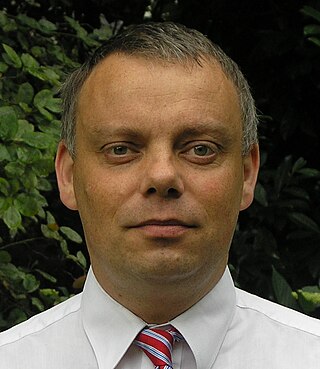
occam is a programming language which is concurrent and builds on the communicating sequential processes (CSP) process algebra, and shares many of its features. It is named after philosopher William of Ockham after whom Occam's razor is named.
In computer science, formal methods are mathematically rigorous techniques for the specification, development, analysis, and verification of software and hardware systems. The use of formal methods for software and hardware design is motivated by the expectation that, as in other engineering disciplines, performing appropriate mathematical analysis can contribute to the reliability and robustness of a design.
Computer science is the study of the theoretical foundations of information and computation and their implementation and application in computer systems. One well known subject classification system for computer science is the ACM Computing Classification System devised by the Association for Computing Machinery.
Computational archaeology describes computer-based analytical methods for the study of long-term human behaviour and behavioural evolution. As with other sub-disciplines that have prefixed 'computational' to their name, the term is reserved for methods that could not realistically be performed without the aid of a computer.
In computer science, communicating sequential processes (CSP) is a formal language for describing patterns of interaction in concurrent systems. It is a member of the family of mathematical theories of concurrency known as process algebras, or process calculi, based on message passing via channels. CSP was highly influential in the design of the occam programming language and also influenced the design of programming languages such as Limbo, RaftLib, Erlang, Go, Crystal, and Clojure's core.async.

In computer science, model checking or property checking is a method for checking whether a finite-state model of a system meets a given specification. This is typically associated with hardware or software systems, where the specification contains liveness requirements as well as safety requirements.
Theoretical computer science is a subfield of computer science and mathematics that focuses on the abstract and mathematical foundations of computation, such as the theory of computation, formal language theory, the lambda calculus and type theory.
A modeling language is any artificial language that can be used to express data, information or knowledge or systems in a structure that is defined by a consistent set of rules. The rules are used for interpretation of the meaning of components in the structure of a programming language.
In computer science, the process calculi are a diverse family of related approaches for formally modelling concurrent systems. Process calculi provide a tool for the high-level description of interactions, communications, and synchronizations between a collection of independent agents or processes. They also provide algebraic laws that allow process descriptions to be manipulated and analyzed, and permit formal reasoning about equivalences between processes. Leading examples of process calculi include CSP, CCS, ACP, and LOTOS. More recent additions to the family include the π-calculus, the ambient calculus, PEPA, the fusion calculus and the join-calculus.
In computer science Language of Temporal Ordering Specification (LOTOS) is a formal specification language based on temporal ordering of events. LOTOS is used for communications protocol specification in International Organization for Standardization (ISO) Open Systems Interconnection model (OSI) standards.
The X-machine (XM) is a theoretical model of computation introduced by Samuel Eilenberg in 1974. The X in "X-machine" represents the fundamental data type on which the machine operates; for example, a machine that operates on databases would be a database-machine. The X-machine model is structurally the same as the finite-state machine, except that the symbols used to label the machine's transitions denote relations of type X→X. Crossing a transition is equivalent to applying the relation that labels it, and traversing a path in the machine corresponds to applying all the associated relations, one after the other.
The actor model and process calculi share an interesting history and co-evolution.
MALPAS is a software toolset that provides a means of investigating and proving the correctness of software by applying a rigorous form of static program analysis. The tool uses directed graphs and regular algebra to represent the program under analysis. Using the automated tools in MALPAS an analyst can describe the structure of a program, classify the use made of data and provide the information relationships between input and output data. It also supports a formal proof that the code meets its specification.
SIGNAL is a programming language based on synchronized data-flow : a process is a set of equations on elementary flows describing both data and control.
OMTROLL is an object-oriented modeling idea that has been formulated by combining the and the formal specifications of the TROLL language. OMTROLL was created to exploit the practical analysis of object-modeling technique, eliminate its ambiguity and vagueness, and to exploit the formal system specifications provided by TROLL.
Mathematics is a broad subject that is commonly divided in many areas that may be defined by their objects of study, by the used methods, or by both. For example, analytic number theory is a subarea of number theory devoted to the use of methods of analysis for the study of natural numbers.

Jan Friso Groote is a Dutch computer scientist.


